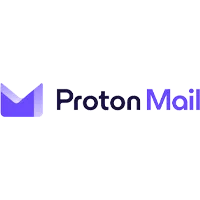Email Security Software
What is Email Security Software?
Email security software protects email accounts from external threats. At the core of the organization’s security infrastructure, it ensures that employees are protected from spam, virus, malware, and phishing threats.
Email security software provides a fundamental security capability of email security gateways. In addition, email security programs use artificial intelligence and machine learning, resulting in better detection and response capabilities.
By providing state-of-the-art technology, you’re always protected from evolving threats, especially email phishing. Identifying and mitigating these threats before they reach the employee’s inbox is vital for a company.
Email security software’s evolution is vital as essential protection is no longer as effective as before. Email security works across an organization’s infrastructure and processes, including email systems, content security, user behavior, and gateways.
Additionally, just picking the right tool is not enough. Companies must work towards correct implementation, including choosing correct configurations and operational procedures that work across connected processes and services.
If you’re thinking of skipping email security, think again, as according to Check Point Research, email is the number one medium to distribute malicious files. Unfortunately, email security software is not advanced. If you’re looking for a more advanced solution for your enterprise environment, you must look at email security gateways.
Top Email Security Software Products
Surfshark Alert
Table of Contents
What does an email protection tool do?
Email Protection tools ensure that emails are protected from hackers and malware. Their biggest challenge is to stop and mitigate zero-day threats. Email Protection solutions are capable of understanding patterns and mitigating zero-day threats, especially in the form of phishing. It continuously learns about dangers through a detection and response framework.
Attachments and links are the primary methods for Phishing attempts. That’s why email protection solution acts as a gateway to scan and monitor all the attachments and links and ensure they are not malicious. The algorithms are at play here, parse for known signatures to know if something is malicious.
Furthermore, the best email protection tool also ensures that no data leak takes place. If it detects any anomaly or suspicious behavior, it notifies the admin.
An email protection tool can segregate emails based on blocklist/allowlist categories. To keep the inbox clean, it also checks its reputation and protects the email server from potential Denial of Service(DoS) attacks.
Lastly, organizations must ensure that all configurations and operational procedures are set alongside their email security tool choice. The employees must also follow best security practices to make the email security setup effective.
Main Benefits of using Email Security Software
Organizations still depend on emails as a primary communication method, even when there’re many communication applications and services, such as Slack. However, emails need complete protection, especially when sharing sensitive data. If the data leaks, it can cause unrepairable damage to the business.
Also, you need to protect your emails from various types of threats, including phishing, spam, viruses, and ransomware attacks. All of these means organizations should use email security software. To understand the need for a top email security tool, let’s go through the benefits below:
- Protect business and secret information
Businesses deploy various techniques and rely on trade secrets to stay competitive. These should remain protected at all costs. The company also deals with customers’ databases, competitors’ knowledge, and other essential data. As a business, it is vital to ensure that no leaks take place. And that’s where email security software comes in, as it protects intellectual and financial data.
- Control device access
Using email security tools lets you control which devices can open sensitive attachments. This way, you can protect sensitive information from opening in a vulnerable or unmanaged device, giving you complete control.
- Spam and phishing protection
Phishing and spam attacks are at the forefront of email vulnerability. Hackers deploy multiple methods, and hence you’ll find evolving phishing attacks. As malicious actors try to bring novelty to their attacks, email security software pushes the envelope by continuously improving the methods to detect and stop phishing and spam attacks. The best way to do so is to match signatures and use a detection and response framework.
In a phishing attack, hackers aim to steal information. It can be business-sensitive or employees’ personal information such as bank account details, credit card information, etc. Email security tools can learn phishing attempt patterns and block them before they reach the user’s inbox.
- Identify suspicious activities or user behavior
In addition, to scanning and monitoring inbound messages, email security software also monitor outbound messages. This way, it can detect any suspicious activity, threats, or user behavior harmful to the organization. For example, by continuously monitoring the outbound messages, email security tools can spot suspicious user behavior or discover compromised accounts. Once it finds anything suspicious, it alters the administrators and other users of potential issues.
- Protection against zero-day threats
Zero-day threats are new threats engineered by hackers to overcome unpatched or unprepared systems. However, email security software’s detection and response framework can identify zero-day threats. For example, zero-day phishing threats modify their approach with new malicious links or attachment that looks genuine. Other zero-day threats include spam, viruses, malware, whaling attack, etc.
- Ensure confidential communication
As email is a way to transfer sensitive and confidential communication, it is essential to protect email messages during the transfer. To achieve this, email providers offer encryption so that hackers cannot intercept confidential email content.
- Real-time protection
Provides real-time protection. It uses modern technologies such as sandboxing, machine learning, predictive analytics, and detection frameworks to stop real-time threats. Real-time protection is vital against new threats such as ransomware.
- Ransomware protection
Ransomware locks computer systems and demand money in exchange for unblocking it. It threatens the owner to release sensitive data. Also, the owner cannot access the system as it is encrypted in the attack. Hackers deploy infected files and URLs via emails to carry out ransomware attacks. Email security tools deploy advanced techniques to protect against ransomware and other threats.
Key Features of Email Security Software
An email security tool offers many key features. Some of these key features include:
Spam filters
Spam filters keep your inbox clean by separating marketing emails. In most cases, your inbox is filled with these marketing emails. If not separated, you can lose track of important emails. That’s where spam filters come in.
Spam filters are also effective at identifying phishing emails disguised as marketing emails. The links or the attachments are modified to infect the receiver’s computer in a phishing email. Once infected, the hacker can access sensitive information, including credit card numbers, bank account logins, etc.
Also, spam filters rely heavily on algorithms and pattern matching. It uses keywords and malicious links to identify spam and quarantines them. After some time, the spam emails are deleted forever.
Antirivurs protection
Spam filters take care of segregating spam and malicious emails. However, there’re still many instances where users click on spam emails and click on attachments. Moreover, spam emails can bypass the spam filter to land in the user’s inbox. In both cases, the user is at risk.
A tool like this offers virus and malware protection to protect users from these scenarios. So, if a user opens an email with malicious content, then the antivirus kicks in. The antivirus scans all the downloadable content, including links, before you can open them.
If it finds something suspicious, it warns the user and quarantines the downloaded files, if needed. Additionally, antivirus protection actively identifies threats and blocks malware-carrying emails before they reach the user’s inbox.
Data encryption
Data encryption makes sure that your email content stays safe at all times during its transmission. Hackers know that email data is most exposed when it is during transmission. That’s why they employ multiple methods, including eavesdropping. Also, compromised emails due to phishing or malware infection can give hackers a way to learn about email content.
Email security tools use data encryption to protect the data. By encrypting email content, hackers are unable to view email content. In most cases, the data is encrypted with military-grade encryption. Also, many email security software can use advanced cryptography features, protecting the email content and the sender and receiver’s email message headers.
Content and image control
Hackers are also capable of transmitting malware through images. However, email security software prevents the image from auto-downloading to ensure the infection doesn’t occur through emails. Moreover, it ensures no inappropriate content lands in the user’s inbox.
Other features besides the above four key features. These include:Anti-phishing: Almost every key feature aims to protect the user from phishing. The tool’s core uses algorithms to analyze and quarantine phishing emails.
URL click-time protection: Apart from attachments, hackers use URLs to infect computers. Email security tools implement a URL click-time protection that scans the URL to protect users from getting infected when opening attached URLs. If the URL is malicious, it stops it from opening or gives a verbal warning about the associated risks.
Clawback: Clawback enables security software to remove a malicious email after it is delivered.
Content Disarm and Reconstruction(CDR): The CDR identifies the benign document(s) that contain malicious content. Moreover, it also reconstructs the document and sanitizes it before sending it to the user.
Sandboxing: The sandboxing feature enables email security software to put suspicious zero-day and sophisticated malware-contained emails in an isolated environment.
How much does it cost for Email Protection Software?
Email security solutions’ pricing costs depend on multiple factors, including the desired security features. Also, if you have a big organization, you need to pay more, as almost every security software provider charges based on the number of employees within an organization. Additionally, they can also charge for configuration, consultation, and monitoring.
Suppose you pick an email security software with essential features such as URL defense, attachment protection, content filtering, and imposter email protection. In that case, you need to pay around $3-4 per employee monthly. For advanced email protection, organizations need to pay $6-7 per month per employee on average.
Once you have decided upon the level of security you want, you need to determine the number of endpoints and employees. This is because the cost depends on how many employees or endpoints you have within your organization. So, if you have 300 employees and want basic protection, you must sell for around $1200 per month.
Email security providers also charge for consultation and configuration. Here, they’ll charge based on network size and the number of employees. On average, any company with less than 500 employees can expect a charge of $100 to $500. However, if you are an organization with over 500 employees, you may have to pay up to $2000.
Lastly, there are also monthly monitoring costs. The monthly management makes sure that your email security software is working correctly. They also manage dashboard alerts, takes care of false positive/negative, and manage users by adding or removing them. Generally, the monthly management can cost between $99 to $500 for small businesses and $500 to $2000 for large companies.
In conclusion, the cost for email protection software are as follows:
- For small business(less than 250 employees)
- Cost per employee per month: $3-4
- Configuration fees(less than 500 employees): $500
- Monthly management cost: $99 – $500.
- For large business(more than 250 employees):
- Cost per employee per month: $6-7
- Configuration fees(less than 500 employees): up to $2000
- Monthly management cost: $500 – $2000
Other software related to Email Security Software
Email security software is at the core of a more prominent email security solution known as Secure Email Gateway(SEG). SEG offers a complete email security solution focused on protecting the enterprise ecosystem. In SEG, you get Data Loss Prevention(DLP), CDR, and other advanced features.
Apart from SEG, other related software includes antivirus solutions, encryption solutions, and artificial intelligence/machine learning solutions.





















